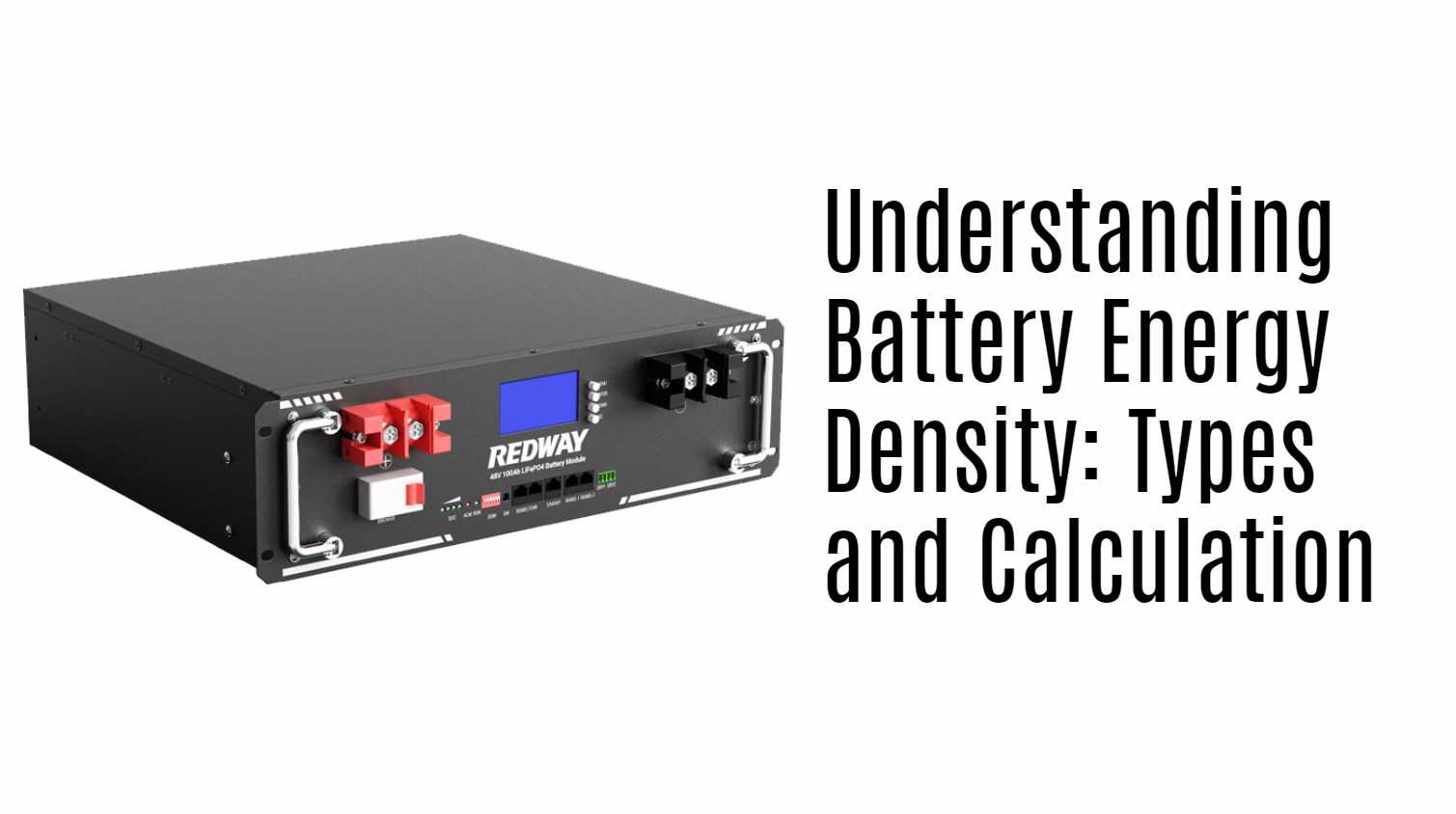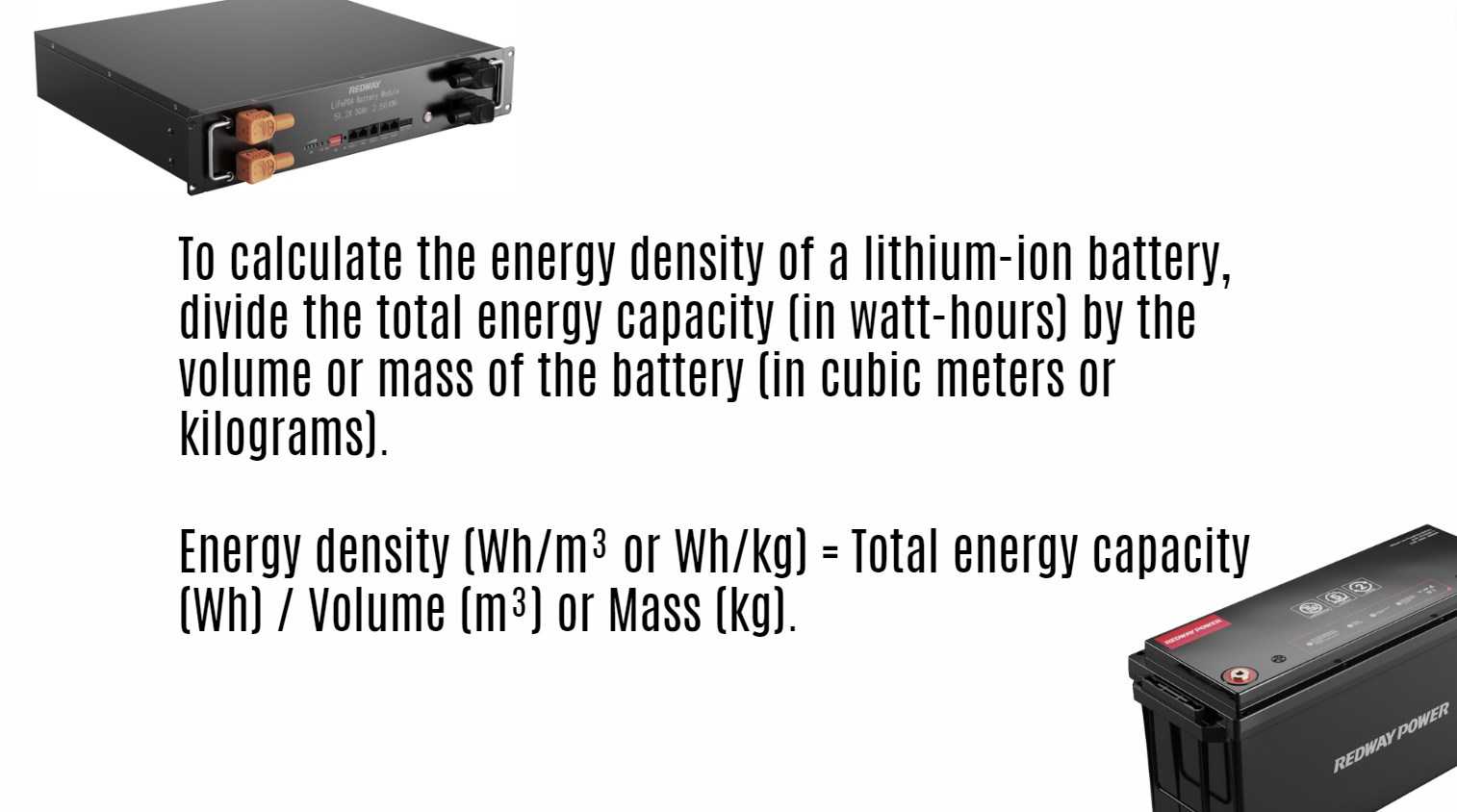Battery energy density is a critical metric in evaluating the performance and suitability of batteries for various applications, ranging from electric vehicles to portable electronics. Energy density, measured in watt-hours per kilogram (Wh/kg) or watt-hours per liter (Wh/L), indicates how much energy a battery can store relative to its weight or volume. This article delves into the types of batteries, their respective energy densities, and the formula used to calculate energy density, providing a comprehensive understanding for industry professionals and enthusiasts alike.
Battery Energy Density Formula
The energy density of a battery is calculated using the following formulas:
Energy Density (gravimetric)=Energy (Wh)Weight (kg)\text{Energy Density (gravimetric)} = \frac{\text{Energy (Wh)}}{\text{Weight (kg)}}Energy Density (gravimetric)=Weight (kg)Energy (Wh) Energy Density (volumetric)=Energy (Wh)Volume (m3)\text{Energy Density (volumetric)} = \frac{\text{Energy (Wh)}}{\text{Volume (m}^3\text{)}}Energy Density (volumetric)=Volume (m3)Energy (Wh)
Wholesale lithium golf cart batteries with 10-year life? Check here.
Where:
- Energy is measured in watt-hours (Wh),
- Weight is measured in kilograms (kg),
- Volume is measured in cubic meters (m³).
Understanding these formulas is crucial for comparing different battery technologies and determining their applicability in specific scenarios.
Want OEM lithium forklift batteries at wholesale prices? Check here.
Types of Batteries and Their Energy Densities
Lead-Acid Batteries
Lead-acid batteries are among the oldest rechargeable battery types, commonly used in automotive and off-grid solar applications. Despite their robustness and low cost, they have relatively low energy densities:
- Energy Density: 30-50 Wh/kg
Nickel-Cadmium (Ni-Cd) Batteries
Nickel-cadmium batteries were once prevalent in portable electronics. However, due to their environmental toxicity and lower energy densities compared to newer technologies, their use has declined:
- Energy Density: 40-60 Wh/kg
Nickel-Metal Hydride (NiMH) Batteries
NiMH batteries are widely used in hybrid vehicles and portable devices. They offer a moderate improvement in energy density over Ni-Cd batteries and are less environmentally harmful:
- Energy Density: 60-120 Wh/kg
Lithium-Ion (Li-ion) Batteries
Lithium-ion batteries are the most prevalent rechargeable batteries today, found in smartphones, laptops, electric vehicles, and grid storage. They offer high energy densities and long cycle life:
- Energy Density: 100-265 Wh/kg
Lithium Iron Phosphate (LiFePO4) Batteries
A subtype of lithium-ion batteries, LiFePO4 batteries are renowned for their safety, long cycle life, and power density. They are extensively used in electric vehicles and solar energy storage:
- Energy Density: 90-130 Wh/kg
Redway and High-Quality Lithium-Ion Batteries
Redway is a leading manufacturer specializing in high-quality lithium-ion batteries, including LiFePO4 batteries. Redway’s products are designed to provide reliable and efficient power solutions for a variety of applications, from electric vehicles to renewable energy storage systems.
Advantages of Redway Lithium-Ion Batteries
- High Energy Density: Maximizes energy storage while minimizing weight and space.
- Long Cycle Life: Ensures durability and cost-effectiveness over time.
- Safety: Advanced safety features reduce risks associated with battery usage.
- Versatility: Suitable for diverse applications, including off-grid solar systems and backup power.
Conclusion
Energy density is a pivotal factor in battery selection, influencing the performance and efficiency of various applications. While traditional battery types like lead-acid and Ni-Cd have their uses, modern lithium-ion and LiFePO4 batteries provide superior energy densities, making them ideal for contemporary energy storage needs. Redway’s commitment to high-quality lithium-ion batteries ensures reliable power solutions, contributing to the advancement of electric vehicles and renewable energy systems.
By understanding the nuances of battery energy densities and the benefits of advanced battery technologies, stakeholders can make informed decisions to optimize energy storage and utilization.








